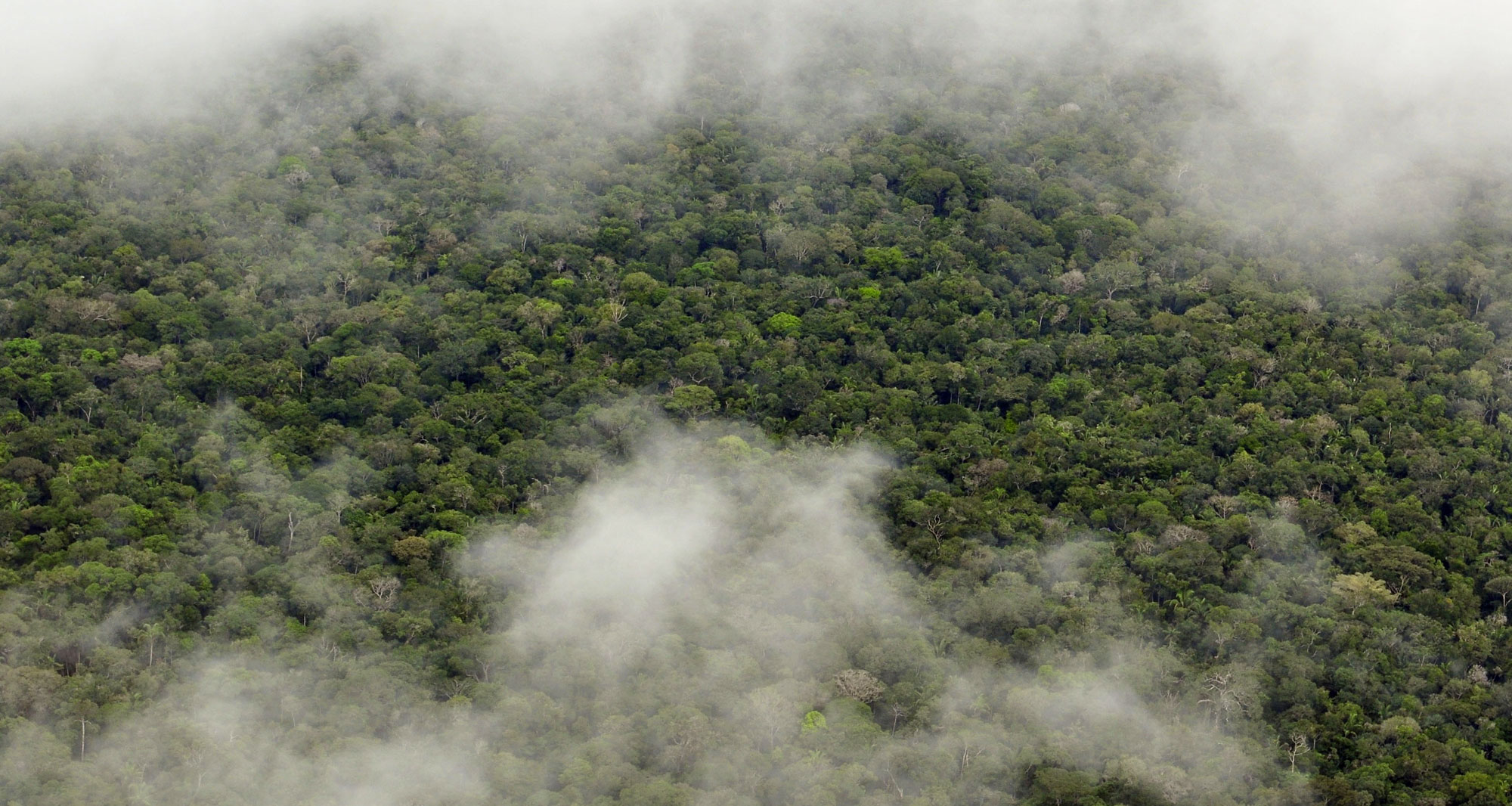
Certain ecosystems are vital in maintaining both quantity and quality of freshwater. These include mountains, mountain forests, rain forests and wetlands.
The critical roles that they play are increasingly being recognized as essential for the long-term continuum of life. This vital issue was acknowledged by the UN Water Security Task Force as the central factor in achieving global water security in an Analytical Brief which was released on 22/3/13 and sent to all UN Governments for serious consideration, regarding water security as a matter of National and International concern. Thus conserving and restoring ecosystems is not a side issue but rather an intrinsic part of providing a life support system for all life on Earth.
“Ensuring that ecosystems are protected and conserved is central to achieving water security – both for people and for nature. Ecosystems are vital to sustaining the quantity and quality of water available within a watershed, on which both nature and people rely. Maintaining the integrity of ecosystems is essential for supporting the diverse needs of humans, and for the sustainability of ecosystems, including protecting the water- provisioning services they provide.”
It is also understood that forests and vegetation play an essential the workings of the functioning of the Earth’s climate and that major deforestation negatively affects weather patterns all around the world.
“Today, there is increased recognition that land-use change is a major driver of global change, through its interaction with climate, ecosystem processes, biogeochemical cycles, biodiversity”
Download: IGBP Report 48, Land-Use and Land-Cover Change (LUCC) Implementation Strategy, 1999.pdf
It is clear that protecting and restoring the ecosystems, which maintain the water cycle, is necessary in order to resolve current and future water crisis. It will also help aid in addressing many other social and environmental challenges.
Ecosystems maintain all of our livelihoods. Because freshwater is so crucial, a worldwide understanding and recognition of the vital roles that certain ecosystems play in maintaining quantity and quality of freshwater is essential. This widespread understanding and the implementation of remedial action is of utmost importance, if humanity and most other species on Earth are to survive for much longer.
“This natural cycling of water is now perturbed by human activities. Together with changing vegetation patterns due to land management practices, these factors complicate the prediction of the consequences of climate change on the Global Water Cycle.” View Full: USGCRP, Draft White Paper, Chapter 7, The Global Water Cycle and its Role in Climate and Global Change, 2002.pdf
Certain ecosystems are pivotal for maintaining life on Earth.
These include mountain regions and their mixed forests, wetlands, rain forests and oceans. The vital role that mountain ecosystems play in maintaining freshwater quantity is increasingly being recognized as essential.

“Mountain ecosystems such as mountain forests, cloud forests, wetlands and grasslands play vital roles in water storage and supply, erosion prevention, reduction of peak flows, reduction of flood risks, water filtering and improvement of water quality.”
Download: UNESCO, 2013,Climate Change impacts on Mountain Regions of the World.pdf
These ecosystems underpin water security, food security and all forms of development. Due to these ecosystems having suffered widespread degradation on a global scale the water cycle has been seriously compromised and threatened, which impacts upon climate and climatic instability worldwide.
“It must be understood, however, that human interaction with the environment is at the centre of water security. We should never forget that nature is a silent stakeholder in all water use. The issue of water security ultimately will only be addressed when humans can find a way to satisfy their growing needs without compromising the ecosystem services they depend upon to fulfill those needs, and to do so in a sustainable way so as to ensure water and environmental security for future generations. These are immense challenges, but they can be addressed in a timely way through innovation, creativity, investment and cooperation.”
Download: UN, The Global Water Crisis: Addressing an Urgent Security Issue, 2012.pdf
The protection, conservation and restoration of all ecosystems and watersheds, which the global water cycle is dependent upon has been recognised by the UN as central to achieving national and international security. Thus, maintaining healthy ecosystems is not a luxury but rather an intrinsic part of providing support and security for all.
“The lives, livelihoods and well-being of people and the health of the environment are interrelated and interdependent. Social, cultural and economic systems cannot be separated from the ecosystems of which they are a part and that provide them with natural resources and life-sustaining services. Where an adequate flow of clean fresh water is ensured for the environment, it subsequently benefits people and communities by enhancing their health and well-being.”
Without sufficient amounts of these ecosystems in a healthy state the water cycle becomes unable to function effectively.
“There is abundant evidence that changes in land cover and land use can have significant, even drastic, impacts on the water cycle at local and regional scales. Also, according to climate model predictions, the most significant manifestation of global warming induced by greenhouse gases would be an intensification of the rate of the global water cycle, leading to increased global precipitation, faster evaporation, and a general exacerbation of extreme weather and hydrological regimes, including floods and droughts.” (Executive Summary (USGCRP, 2001, Executive Summary of the Water Cycle Science Plan)
The conservation and restoration of natural water provisioning infrastructure such as mixed mountain forests is far more essential than constructing and maintaining the built infrastructures that provides technological services for societies as they underpin all present and future success.
“Goals for conserving and sustainably using nature and achieving sustainability cannot be met by current trajectories, and goals for 2030 and beyond may only be achieved through transformative changes across economic, social, political and technological factors.” View Full: IPBES, Global Assessment Report on Biodiversity and Ecosystem Services, 2019.Pdf
The primary objective for long-term success in securing a globally sustainable freshwater supply for present and future generations is to protect, restore and maintain the ecosystems, which the renewable and recharge functions of freshwater are utterly dependent upon.
This has to be done while it is still potentially possible, as a matter of urgency. Adequate supplies and quality of freshwater are dependent upon such action. It could be as straightforward as a worldwide concerted mountain region reforestation and rehabilitation program.
“Habitat is a requirement for all species, and habitat loss and degradation accounts for more species extinctions than any other cause. The main cause of global habitat loss and degradation is human use of the land: changes in land use and land cover are important global changes.” View Full: USGCRP, Global Change Report Ecosystems Research.pdf
This is not a new conversation. UN conferences to consider environmental and water security have been occurring since the 1970’s. These include the UNESCO Belgrade Charter on Environmental Education 1975 and the first UN water focused conference in Mar Del Plata in 1977. Yet too often concerted action has been delayed in favour of short-term economics.
“The current lack of consensus on a guiding ethic for water policy has led to fragmented decision- making and incremental changes that satisfy no one.”
Download: Threats to the World’s Freshwater Resources, P.H Gleick et al, 2001.pdf
Now this trend needs to change. We need to use the good knowledge and capacities that we have and act upon them.
“This generation may either be the last to exist in any semblance of a civilised world or that it will be the first to have the vision, the bearing and the greatness to say, ‘I will have nothing to do with this destruction of life, I will play no part in this devastation of the land, I am determined to live and work for peaceful construction for I am morally responsible for the world of today and the generations of tomorrow.” Richard St Barbe Baker, The New Earth Charter
“The natural resources of the Earth including the air, water, land, flora and fauna and especially representative samples of natural ecosystems must be safeguarded for the benefit of present and future generations through careful planning or management as appropriate.”
Download: UN Conference on the Human Environment Stockholm, 1972.pdf
In order to conserve, restore and manage these ecosystems in a holistic manner, it is necessary to recognise that the different ecosystems around the world are interrelated and interdependent.
“For future food security, land and water management needs to preserve ecosystem functions and ensure the future of the resource. Sustainable management of ecosystems, and an ecosystem’s approach to water management from local to continental levels is key to ensuring quantity and quality of water for food security and nutrition in the future.”
Download: FAO/HLPE, Water for Food Security and Nutrition, 2015
This vital link between ecosystems and water quantity was recognised by the US Intelligence Services in 2012 and the USGCRP provided them with adequate information previously but it has been seriously neglected. This plays a major part in massive environmental problems to may millions of people throughout the world, along with the potential extinction of many species and increased climatic instability.
“changing land-use patterns, such as deforestation and soil grading, will reduce the supply of water that would otherwise be available.” (US Intelligence Community Assessment on Global Water Security, 2012)

